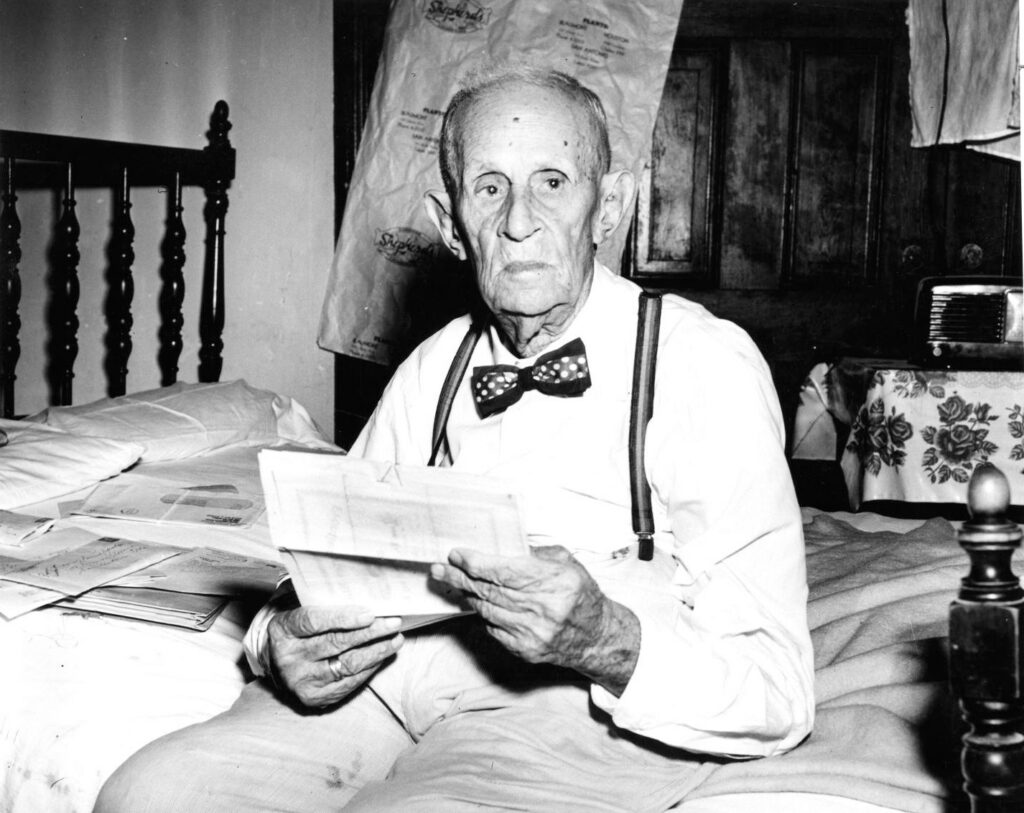Texas Ranger Samuel Graham
Submitted by Traces Of Texas

Photograph Sam Graham, Texas Ranger. This was taken in 1951 when he was 93 years old. He is holding some certificates - one penned and signed by Captain Lee Hall in a barber shop at Quero in 1880. This photograph is part of the collection entitled, Where the West Begins: Capturing Fort Worth's Historic Treasures, and was provided by the Cattle Raisers Museum.
Former Texas Ranger Samuel Graham at the age of 93 in San Antonio back in 1951. Sam was born in New York in 1858 and, sadly, died a few months after this photo was taken. He is buried in San Antonio's Sunset Memorial Park. Sam told the following rather amazing story about an Apache ambush near Van Horn, Texas:
"I got tired of being a Ranger, had accumulated 5300 in hard-earned money, and decided to set out to the fabulous land of Arizona about which inspiring talks of finding gold had reached us.
In the party were about ten traveling in three wagon outfits, including my brother Harry and his newly wedded wife.
On the government road nine miles from Eagle Springs the party was waylaid by the Indians. I was the only cavalryman in the party leading the procession and had been allowed to get ahead.
At Bass Canyon the Apaches concealed behind sacaton grass* opened fire on the three-wagon train. At the first volley two of our party were shot down, supposedly dead.
Hearing the shots I wheeled round, ran into the foray, dismounted, took my Winchester and blazed away, soon routing the ambushers.
My brother Harry lay on the ground, having fallen at the first volley.
Harry's wife was of the spirit and mettle of pioneer women. She believed Harry was dead, but rushed to the wagons, grabbed a Winchester and from the tongue of a wagon fired at the Indians. But a bullet passed through her temple.
I took the other eight of the party to Eagle Spring, just east of Van Horn, and obtained twelve soldiers to return to bury the dead and see after the personal effects left at the wagons.
Out there I found my brother Harry still alive. He had been shot through the groin and had lain in the burning sunshine all day without water. He told me he didn't know when the Indians left. All about were the looted wagons, horses were gone, trunks were broken open.
I put my brother on a stage at Fort Stockton for El Paso for entry into a Government hospital. After a long stay there he recovered, though he was a cripple ever afterward. He married again and reared a large family."
*Sacaton grass is a coarse perennial grass (Sporobolus wrightii) of the southwestern U.S. that is used for forage especially in alkaline soils.
